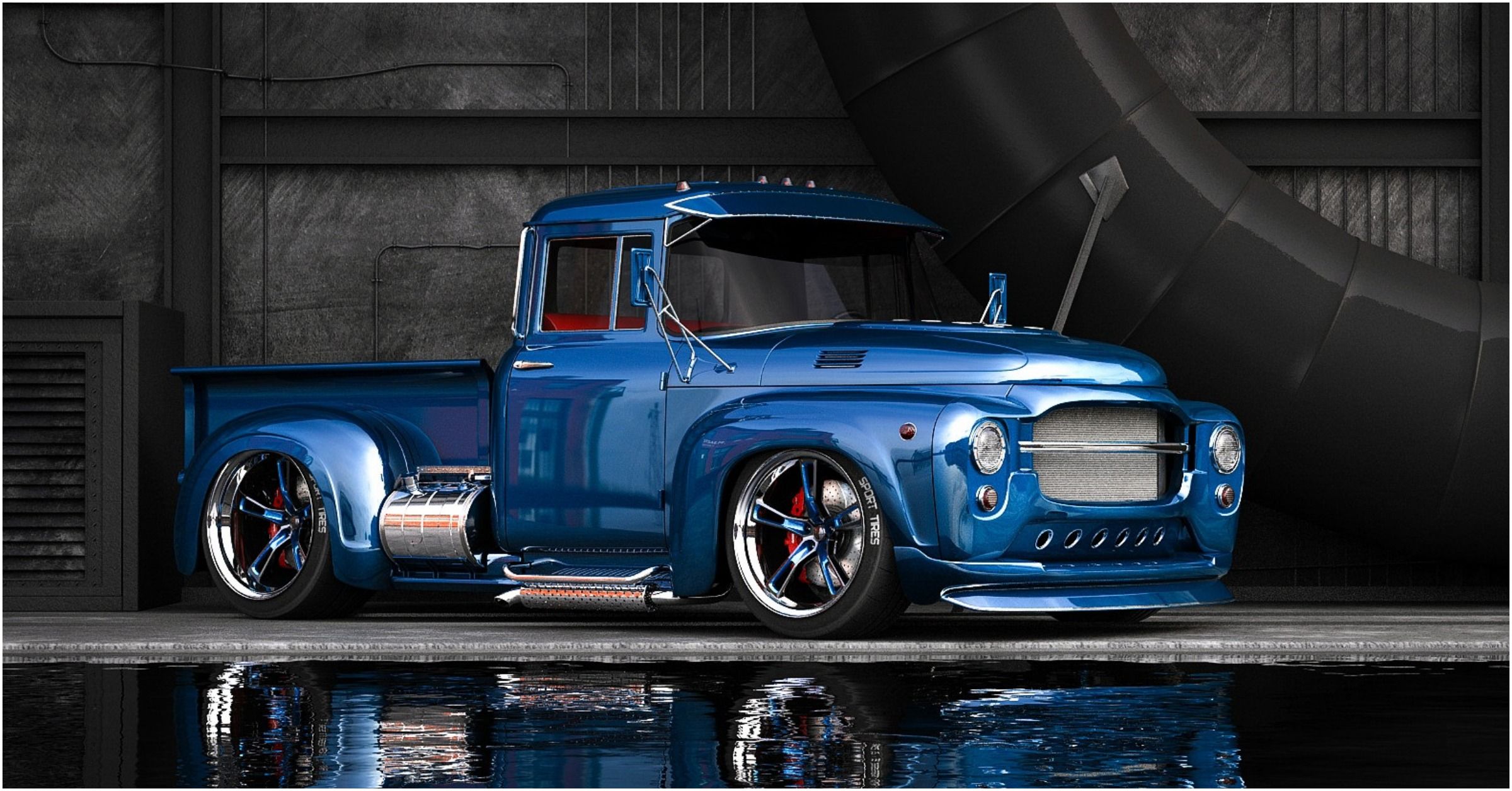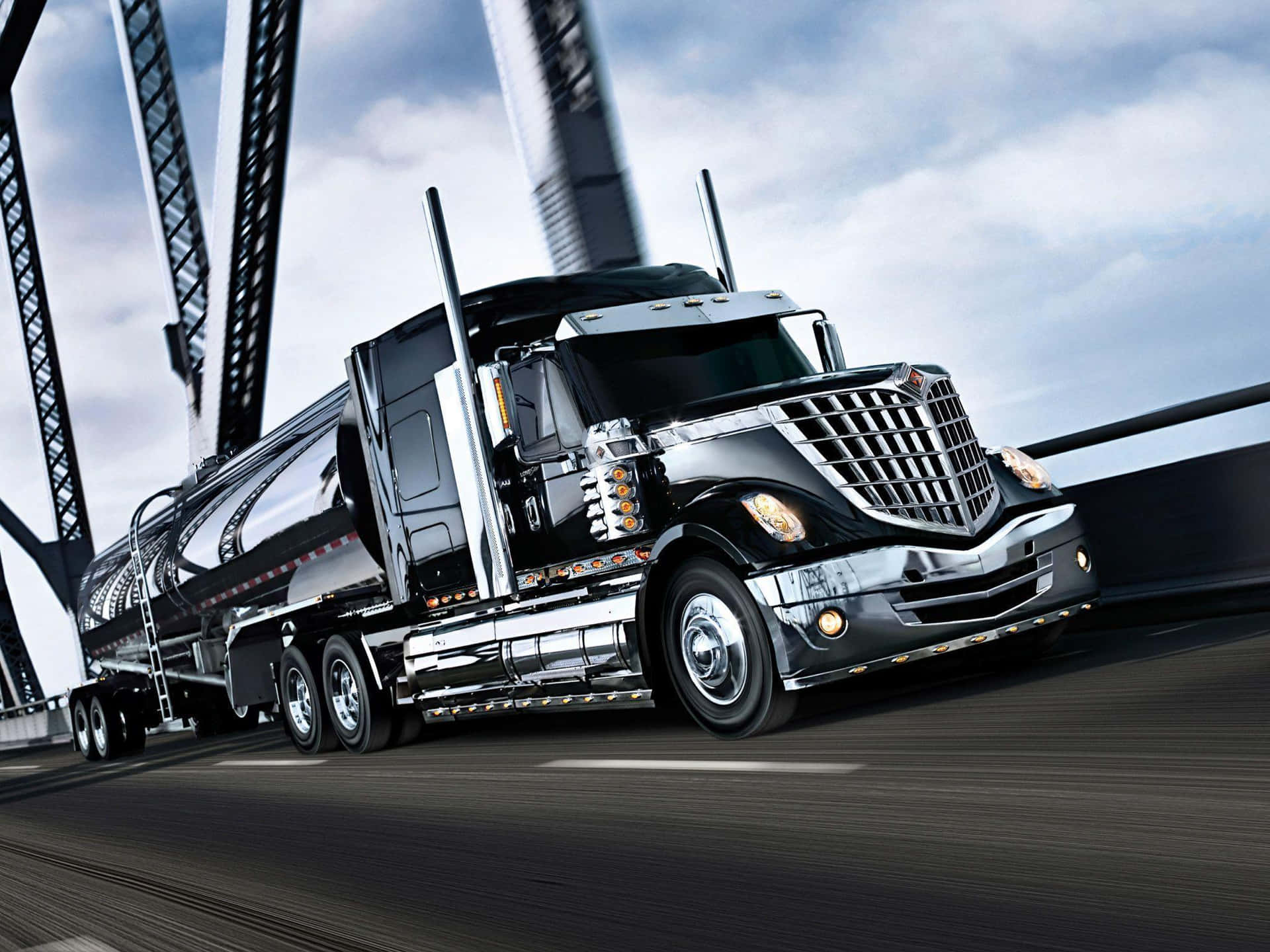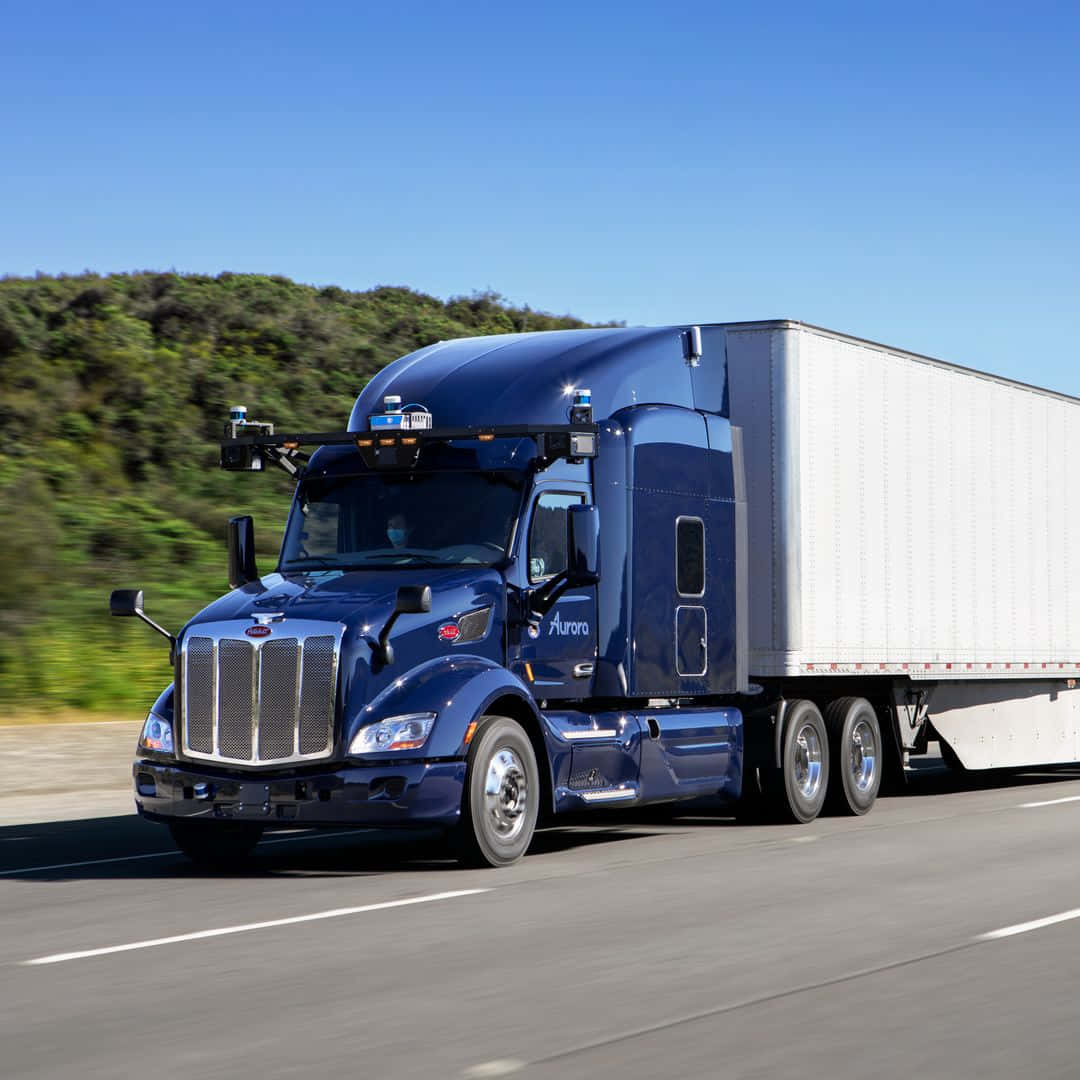Trucks For Sale NYC: Your Comprehensive Guide to Navigating the Urban Market pickup.truckstrend.com
Introduction: Navigating the Urban Jungle on Wheels
New York City, a bustling metropolis of commerce, culture, and relentless activity, relies heavily on a robust network of vehicles to keep its intricate machinery running. Among these, trucks play an indispensable role, serving everyone from small business owners and contractors to large logistics companies and specialized service providers. For anyone looking to acquire a truck in the five boroughs or the surrounding tri-state area, understanding the unique landscape of "Trucks For Sale NYC" is paramount. This isn’t just about finding a vehicle; it’s about identifying the right tool for the job, one that can withstand the demands of urban operations, comply with stringent local regulations, and ultimately contribute to your success.
Trucks For Sale NYC: Your Comprehensive Guide to Navigating the Urban Market
This comprehensive guide will delve deep into every aspect of purchasing a truck in New York City. We’ll explore the diverse types of trucks available, where to find them, critical factors to consider before making a purchase, and a step-by-step walkthrough of the buying process. Whether you’re a seasoned entrepreneur expanding your fleet or a new business venturing into the mobile market, this article aims to equip you with the knowledge and actionable insights needed to make an informed and confident decision in the dynamic NYC truck market.
The NYC Truck Market: A Diverse Landscape
The demand for trucks in NYC is as varied as the city itself. From transporting goods through narrow Manhattan streets to hauling construction materials in Brooklyn or setting up a mobile food business in Queens, each task requires a specific type of vehicle. Understanding the common categories available will help narrow down your search.
- Light-Duty Trucks: These include popular pickup trucks (Ford F-150, Chevy Silverado, Ram 1500) and smaller cargo vans (Ford Transit Connect, Ram ProMaster City, Mercedes-Benz Metris). They are ideal for personal use, small businesses, delivery services, and tradespeople who don’t require heavy hauling capacity but need versatility and maneuverability in congested areas. Their relatively smaller footprint makes them easier to navigate and park in NYC.
- Medium-Duty Trucks: This category encompasses larger cargo vans (full-size Ford Transit, Sprinter, ProMaster), cutaway vans, and straight trucks (box trucks) often seen for moving services, local deliveries, and various commercial operations. They offer greater payload capacity and enclosed cargo space, making them suitable for businesses needing more volume than a light-duty vehicle can provide.
- Heavy-Duty Trucks: These are the workhorses of the city, including large box trucks, dump trucks, refuse trucks, flatbed trucks, and tractor-trailers. Primarily used in construction, waste management, large-scale logistics, and heavy hauling, these vehicles require significant investment and often specialized licensing (CDL) for operation.
- Specialty Trucks: NYC’s unique needs also foster a market for highly specialized vehicles like food trucks, utility trucks (bucket trucks, cherry pickers), tow trucks, and emergency vehicles. These often come with custom outfitting and require specific permits and licenses.

The benefits of buying a truck in NYC extend beyond utility. For businesses, it represents a tangible asset, a mobile advertisement, and a critical component of operational efficiency. The sheer volume of commercial activity ensures a steady supply of new and used trucks, offering buyers a wide array of choices across different price points and conditions.
Where to Unearth Your Ideal NYC Truck
Finding the right truck in a city as vast as New York requires knowing where to look. Options range from traditional dealerships to digital marketplaces and even public auctions.
- Authorized Dealerships:
- Pros: Offer new vehicles with manufacturer warranties, access to financing, certified pre-owned options, and reputable service departments. They provide peace of mind regarding vehicle history and condition.
- Cons: Generally higher prices, and less room for negotiation compared to private sales. While many are located just outside the core boroughs, several can be found in Staten Island, Queens, and the Bronx, or a short drive into Long Island or New Jersey.
- Used Truck Dealerships:
- Pros: Specializing in pre-owned commercial vehicles, these dealers offer a wider variety of makes and models, often at more competitive prices than new car dealerships. They can be a good source for specific commercial vehicle types.
- Cons: Vehicle history might be less transparent than certified pre-owned, and warranties might be limited or non-existent.
- Online Marketplaces & Classifieds:
- Platforms: Craigslist, Facebook Marketplace, eBay Motors, CommercialTruckTrader.com, TruckPaper.com, and local classifieds (e.g., NYTimes, Newsday).
- Pros: Vast selection, ability to compare prices quickly, direct contact with private sellers (often leading to better deals), and convenience of browsing from home.
- Cons: Risk of scams, misrepresentation of vehicle condition, no warranties, and the burden of arranging inspections and title transfers yourself.
- Auctions:
- Types: Public auctions (e.g., city surplus auctions, police impound auctions), dealer-only auctions (often requiring a dealer license), and online auction platforms.
- Pros: Potential for significant savings, especially on repossessed or fleet vehicles.
- Cons: "As-is" sales (no warranties, often no test drives), vehicles may require substantial repairs, and intense competition from experienced buyers. Requires thorough research and often a pre-inspection if allowed.
- Private Sellers:
- Pros: Often the lowest prices, more flexibility for negotiation.
- Cons: No warranties, "as-is" sales, more legwork for inspections and paperwork, and potential for hidden issues.


Critical Considerations for NYC Truck Buyers
Purchasing a truck in New York City comes with its own unique set of challenges and requirements. Beyond the standard checks, NYC-specific factors must be prioritized.
- Budget and Financing: Determine your maximum budget, including not just the purchase price but also sales tax, registration fees, insurance, and potential immediate repairs. Explore financing options:
- Traditional Bank Loans: Competitive rates, but require good credit.
- Dealership Financing: Convenient, but compare rates with external lenders.
- Commercial Vehicle Loans/Leases: Tailored for businesses, often with flexible terms.
- Cash Purchase: Eliminates interest, but ties up capital.
- Vehicle Condition and History:
- Mileage: High mileage isn’t necessarily a deal-breaker for well-maintained trucks, but it impacts value and potential longevity.
- Maintenance Records: Crucial for understanding past care. Look for regular oil changes, tire rotations, and major service intervals.
- Accident History: Obtain a vehicle history report (CarFax, AutoCheck) to check for accidents, salvage titles, flood damage, and odometer discrepancies.
- Pre-Purchase Inspection (PPI): Non-negotiable for used trucks. Hire an independent, certified mechanic to thoroughly inspect the vehicle, including the engine, transmission, brakes, suspension, and electrical system. This can uncover hidden issues and save you thousands.
- NYC-Specific Regulations and Compliance:
- Emissions Standards: New York has strict emissions regulations. Ensure the truck can pass inspection. Diesel trucks, especially older ones, may require specific filters or upgrades.
- Weight Restrictions: Be aware of bridge and tunnel weight limits, especially for heavy-duty trucks.
- Parking: NYC parking is notoriously difficult and expensive. Consider the size of the truck and where it will be stored overnight. Residential street parking for commercial vehicles is often restricted. Garages or dedicated commercial lots are common but costly solutions.
- Toll Regulations: E-ZPass is essential for seamless travel on NYC bridges and tunnels.
- Permits: Depending on the truck’s use (e.g., oversized loads, street vending, construction), specific city permits may be required.
- Insurance: Commercial truck insurance can be significantly more expensive than personal vehicle insurance. Get quotes from multiple providers specializing in commercial policies, as rates vary widely based on vehicle type, usage, driver history, and coverage limits.
- Fuel Type and Efficiency: Diesel trucks generally offer better fuel economy and torque for heavy loads but have higher purchase costs and maintenance. Gasoline trucks are cheaper upfront but less fuel-efficient for heavy use. Consider CNG/LPG or electric options for potential long-term savings and environmental benefits, though infrastructure is still developing.
The Smart Buyer’s Guide: Step-by-Step Acquisition
Once you’ve identified your needs and narrowed down your options, follow these steps for a smooth purchasing experience.
- Extensive Research: Before even looking at trucks, research common issues for specific makes and models you’re considering. Read reviews, check consumer reports, and understand typical maintenance costs.
- Initial Contact and Questions:
- For private sellers: Ask about mileage, maintenance history, reason for selling, any known issues, and if the title is clear.
- For dealerships: Inquire about warranties, service records, and financing options.
- Visual Inspection (First Pass):
- Check for rust, dents, scratches, and mismatched paint.
- Inspect tires for wear and tear, and ensure they match.
- Look under the hood for fluid leaks, frayed belts, and unusual corrosion.
- Check interior for excessive wear, dashboard warning lights, and proper function of all controls (AC, radio, lights, windows).
- Test Drive:
- Drive on varied terrain: city streets, highways, inclines.
- Listen for unusual noises (engine, transmission, brakes, suspension).
- Check steering for responsiveness and alignment.
- Test brakes thoroughly (smooth stopping, no pulling).
- Pay attention to transmission shifts (smooth, no jerking).
- Test all lights, signals, and accessories.
- Pre-Purchase Inspection (PPI): As mentioned, this is critical. Schedule an inspection with a trusted independent mechanic before finalizing any deal, especially for used vehicles.
- Negotiation: Armed with your inspection report and market research, negotiate the price. Point out any discovered issues to justify a lower offer. Don’t be afraid to walk away if the deal isn’t right.
- Financing Arrangement: Secure your loan or financing. Have all necessary documents ready: ID, proof of income, business registration (if applicable), and credit history.
- Paperwork and Title Transfer:
- Ensure the seller has a clear title. In New York, the title must be signed over correctly.
- Complete a Bill of Sale (DMV form MV-912) that includes vehicle details, purchase price, and signatures of both buyer and seller.
- Obtain proof of insurance before registering the vehicle.
- Visit the NYS Department of Motor Vehicles (DMV) to register the vehicle and obtain new plates. You’ll need the title, bill of sale, proof of insurance, and identification. Be prepared for sales tax payment.
Financing and Legalities: Smooth Sailing Ahead
Navigating the financial and legal aspects of truck ownership in NYC can be complex, but understanding the basics will save you headaches.
- Commercial vs. Personal Financing: If the truck is for business, pursue commercial loans. They often have different eligibility criteria, terms, and tax implications (e.g., Section 179 deduction for eligible business vehicles).
- Leasing vs. Buying:
- Leasing: Lower monthly payments, less upfront cash, potential tax benefits, and easy upgrades to newer models. However, you don’t own the asset, and mileage restrictions apply.
- Buying: Builds equity, no mileage limits, full control over modifications. Higher upfront cost and ongoing maintenance responsibility.
- NYC-Specific Permits and Licenses: Beyond the standard driver’s license (CDL if required for vehicle class), depending on your truck’s use, you might need:
- NYC Department of Consumer Affairs (DCA) Licenses: For specific trades (e.g., home improvement contractors, general vendors).
- NYC Department of Transportation (DOT) Permits: For street work, oversized vehicles, or special parking.
- Department of Health and Mental Hygiene (DOHMH) Permits: Crucial for food trucks, requiring strict health code compliance and regular inspections.
- Clean Air Act Compliance: Older diesel trucks may need to be retrofitted with Diesel Particulate Filters (DPF) or other emission control devices to operate within NYC limits.
Maintaining Your Investment in the Big Apple
A truck in NYC faces unique stresses: constant stop-and-go traffic, potholes, harsh weather, and tight maneuvering. Regular, diligent maintenance is not just recommended; it’s essential to ensure longevity and minimize downtime.
- Frequent Inspections: Beyond annual state inspections, regularly check tires, brakes, fluid levels, and lights. NYC roads are tough on suspension and steering components.
- Oil Changes: Adhere to manufacturer-recommended intervals, or even slightly more frequently given urban driving conditions.
- Brake Wear: Constant braking in traffic leads to faster wear. Be proactive about brake pad and rotor replacement.
- Tire Care: Potholes are rampant. Check tire pressure frequently and inspect for bulges or cuts. Consider heavy-duty tires for commercial use.
- Rust Prevention: Salted roads in winter contribute to corrosion. Regular washing, especially the undercarriage, is vital.
- Finding a Mechanic: Seek out mechanics specializing in commercial vehicles or the specific make/model of your truck. Word-of-mouth recommendations and online reviews are valuable. Mobile mechanics can also be a convenient option for minor repairs, saving time and avoiding NYC traffic.
Estimated Price Guide for Trucks in NYC
The price of a truck in NYC varies dramatically based on type, age, condition, mileage, and features. The following table provides general estimated ranges for common truck types, noting that these are highly variable and subject to market fluctuations.
| Truck Type | Typical Use in NYC | New Price Range (Est.) | Used Price Range (Est.) | Key Features/Notes



